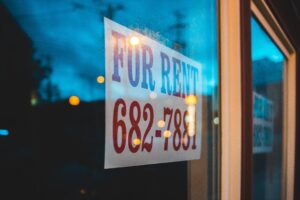How to Find the Best Property Management Insurance
As a property manager, taking on specific risks while overseeing residential or commercial buildings for other building owners is part of the job. But are these risks putting you, your employees, and your business in potential danger?
Whether you manage condos, office buildings, main street properties, or apartments, here’s what you need to know about finding the best property management insurance for you.
Who Needs Property Management Insurance?
If you rent, manage, or maintain the commercial or residential property with a business goal in mind, property management insurance is likely a necessity.
Commercial property managers, apartment managers, real estate property managers, and condominium managers are just some of the professional titles who seek out property management insurance on a regular basis.
What Liability Risks Do Property Managers Face?
As a property manager, you have a long list of daily and routine to-dos. Between finding tenants, negotiating and enforcing leases, collecting rent, repairing and updating rentable properties, and ensuring the safety of tenants and all their guests, it’s easy to forget about all the possible insurance-worthy scenarios that could arise without warning.
Unfortunately, there are plenty of situations that could lead to an insurance claim. Think about:
- Damaged tenant property
- Slip-and-fall accidents
- Employee injuries on the job
- Failure to provide promised services
- Accusations of negligence or discrimination
- Tenant injuries
- Damaged business property
- Vandalism and theft
- Data breach lawsuits
Could you handle an incident with legal and financial confidence if it happened today?
What Does Property and Liability Insurance Cover?
Property management insurance can consist of one, two, or several different small business policies that work together to cover the unique risks of a property manager. Common policies include:
Commercial property insurance
This type of coverage protects your company’s physical assets should they be damaged or destroyed by fire, burst pipes, a storm, explosion, theft, or vandalism.
For example, if a fire sweeps through an office rental property and damages half of your rentable spaces, this coverage would help pay for the repairs or replacement of lost property.
Keep in mind that earthquakes and floods aren’t typically covered by commercial property insurance. If your property is in an NYC flood zone, you’ll want to add this coverage to your policy.
Business income insurance
If you lose income due to a temporary suspension of normal operations from damage to physical property, you can recoup part of your financial losses with business income insurance.
Coverage helps replace lost income and cover ongoing expenses, including rent, payroll, and other financial responsibilities while repairs are underway.
Commercial general liability
General liability insurance offers coverage for basic property management risks, like tenant property damage and injuries. It also covers personal and advertising injury caused by your services, business operations, or employees.
For example, if an employee damages property or accidentally injures a tenant while performing a work-related task, commercial general liability coverage kicks in.
Professional liability/errors and omissions
This type of coverage protects you from inherent business risks, such as failure to purchase appropriate property insurance that results in a loss for the property owner. Professional liability coverage also covers legal defense costs, settlements, or adjustments you may be required to pay.
Helpful Tip: Combine Policies
A business owners policy (BOP) combines commercial property insurance and general liability insurance into one convenient package. This not only saves you time but can also provide financial savings as well. If you’re concerned a package deal doesn’t meet your coverage needs, you can always add on additional coverage as needed.
Other Types of Property Management Insurance Policies to Consider
Workers compensation
Workers compensation insurance is state-related insurance you’re required to carry if your business meets unique state requirements. If you have any employees, you’re likely required to carry this type of coverage which provides wage replacement and medical and rehabilitation benefits to employees who get sick or are injured on the job.
Tenant discrimination insurance
Not always covered by general liability policies, accusations of tenant discrimination can be a serious issue for property managers. Make sure to ask your insurance provider if this coverage is included in your policy. If not, adding on this type of coverage can protect you from prospective or former tenants alleging wrongful discrimination against you or your business.
Cyber liability insurance
As a property manager, you likely store both professional and personal information within your database. From company tenant information to personal applications, your database might store social security numbers, bank account numbers, credit card numbers, and private personal information.
A single breach could lead to multiple lawsuits. There’s also the cost of informing breach victims and the cost of repairing your brand to consider. Cyber liability insurance can help protect you from the cost of cyberattacks.
Auto insurance
If your business uses vehicles in your operations, auto insurance is a must. Make sure coverage extends past your own insured vehicles and also addresses claims from employees using their personal vehicles to handle work-related tasks.
How Much Does Property Management Insurance Cost?
The cost of property manager insurance widely varies. Factors affecting the price of insurance for property managers include the number of employees, property value, desired coverage, and overall budget.
But to give you a ballpark figure when it comes to budgeting for insurance as a property manager, consider the following average monthly policy costs associated with several different types of property management insurance.
- A BOP costs an average of $84/month, based on information provided from Progressive Commercial, a carrier we work with.
- A professional liability policy costs an average of $46/month, based on information provided from Progressive Commercial, a carrier we work with.
- A general liability policy costs an average of $53/month, based on information provided from Progressive Commercial, a carrier we work with.
A quick chat with an experienced insurance broker can help you develop and price a property manager insurance package that suits your needs while keeping your budget in mind.
Final Thoughts
As a property manager, you face unique risks that can’t always be prevented. Property insurance is one way to establish yourself as a professional. Your business will be provided with credibility while you sleep better at night knowing that you and the properties you manage are protected.



